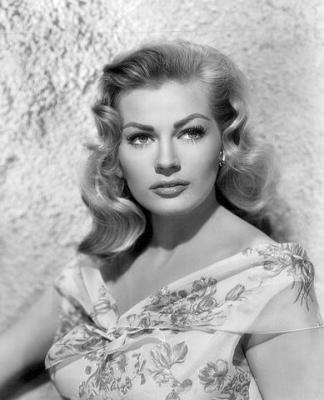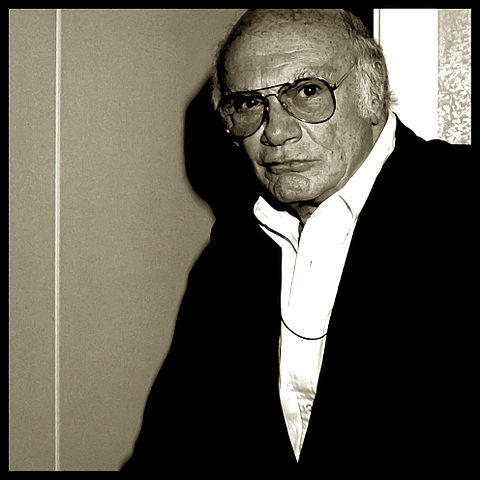Italy says Ciao to Ekberg, Rosi

ROME - Italy is mourning after beloved actress Anita Ekberg and respected director Francesco Rosi died within hours of each other.
Ekberg, the Swedish actress once billed as “Paramount's Marilyn Munroe”, died Saturday in Rome aged 83 after a lengthy period of Illness. While political film-maker Francesco Rosi also died Saturday, aged 92.
Ekberg was born Sept. 1930 in Malmö. Tall, beautiful and busty, she was encouraged to enter the Miss Malmö contest by her mother, which she won in 1950. She subsequently won Miss Sweden in the same year and went on to place as a finalist in the 1951 Miss Universe, which won her a starlet's contract with Universal Studios.
After years of modelling work and a string of minor roles in TV series and films, Ekberg landed a starring role in Back from Eternity (1956). Without doubt, her most famous Role came in Fellini's La Dolce Vita (1960), when she played the dream girl of leading actor Marcello Mastroianni. In one immortal scene she leaps into the Trevi fountain and playfully splashes around like a siren. The scene transformed her into a global icon – as well as spawning countless awkward (and illegal) recreation attempts by tourists.
That was the high point of her career. Though she had displayed her acting abilities in earlier films like War and Peace (1956), after La Dolce Vita she was increasingly typecast as a bombshell and placed in roles that made the most of her good looks and impressive bust. In 1962 Fellini redeployed her in his part of the anthology Boccacio '70 The temptation of doctor Antonio. She plays a giant, buxom model from a “drink more milk” advert who comes to life.
As her looks waned, so too did her career. Her later films were a series of B-movies – but she was quick to point out the power that her looks had once held: “It was I who made Fellini, not the other way round.” She said of her famous Trevi fountain scene.
Ekberg's personal life was both colourful and tragic. She was romantically linked to a string of men including Errol Flynn, Giovanni Agnelli and Frank Sinatra. She married twice but both marriages finished in divorce. Her first husband was British actor Anthony Steel (1956 – 59) and she later married actor Rick Van Nutter (1963-75). In a rare interview later in life Ekberg expressed a regret at not having had any children.
She lived out her final years as a recluse in a dilapidated villa of the outskirts of Rome. With her home damaged by fire and her jewellery and furniture taken by thieves, penniless Ekberg was forced to appeal to the Fellini Foundation for help in 2011 but the organization responded that they “barely had any money themselves.” She had reportedly been in a wheelchair since 2011 after breaking her hip when falling over one of the two Great Danes she kept as company.
Her funeral will be held Wednesday in the Evangelica Luterana church in via Sicilia, Rome. The service will be held in English, after which she will be cremated and her ashes returned to her native city of Malmö.
In her honour the City of Rome have unveiled a large photo of Anita above the Trevi Fountain which is currently closed for works. The sign simply reads “Ciao Anita.”
Saturday also saw the passing of icon from behind the lens. Director Francesco Rosi was famed four his journalistic film-making style and died at home as a result of complications from bronchitis.
Rosi's films struck a chord with the Italian left during the so-called “years of lead” (a period of political unrest in Italy between 1969 and the 1980s). His films were heavily political. Salvatore Guiliano (1962) tells the story of a Sicilian folk hero and so-called “people's bandit” who was killed in 1950 and Le Mani Sulla Città (1963) exposed building speculation and corruption in Mafia heartland of Naples.
His greatest critical success came in 1972 when he won the Palme d'Or his film The Mattei Affair, which investigated the suspicious circumstances surrounding the death of ENI president Enrico Mattei.
The subversive nature of Rosi's work should not be underestimated. While Rosi was working on The Mattei Affair, collaborating journalist Mauro De Mauro disappeared in 1970 and was never seen again. It is widely believed that the Mafia were responsible for his death. The Matteo Affair is in part, a biography of Mattei, but also shows the investigative work carried out by Rossi, who stars as himself in the film.
His final film, La Tregua (the truce 1996) was based on Primo Levi's memoir of his journey home from Auchwitz and starred John Turturro in the role of Levi. Later in his life Rosi lamented the increasing individualism present in modern cinema was “to the detriment of stories about the relationships between man, woman and society.”
Rosi was married to Giancarla Mandelli, who passed away in 2010 and is survived by daughter Carolina. His funeral was held Monday and was attended by a number of artistic and political figures including Italian President Giorgio Napolitano as well as film-maker Franco Zeffirelli.



